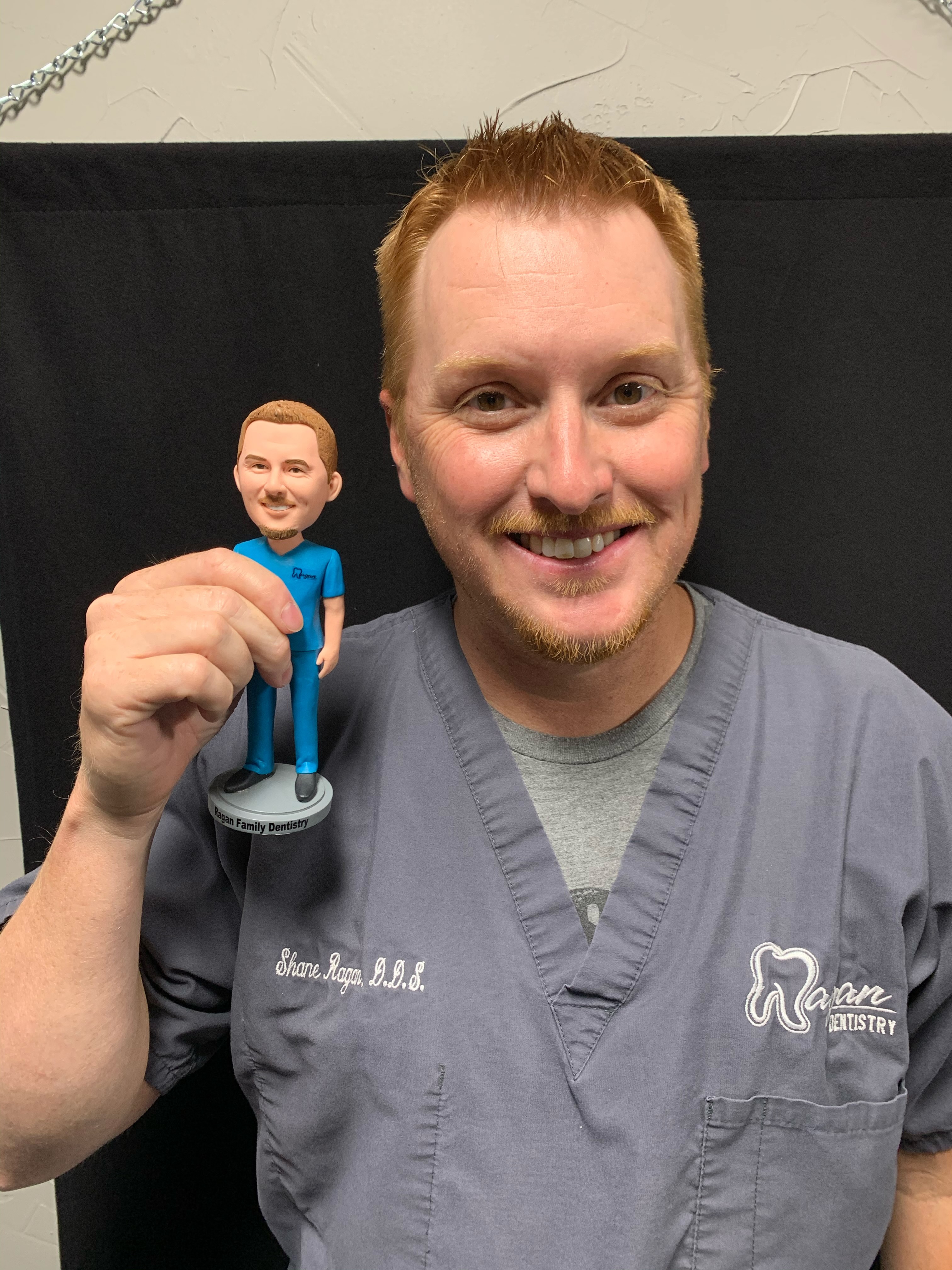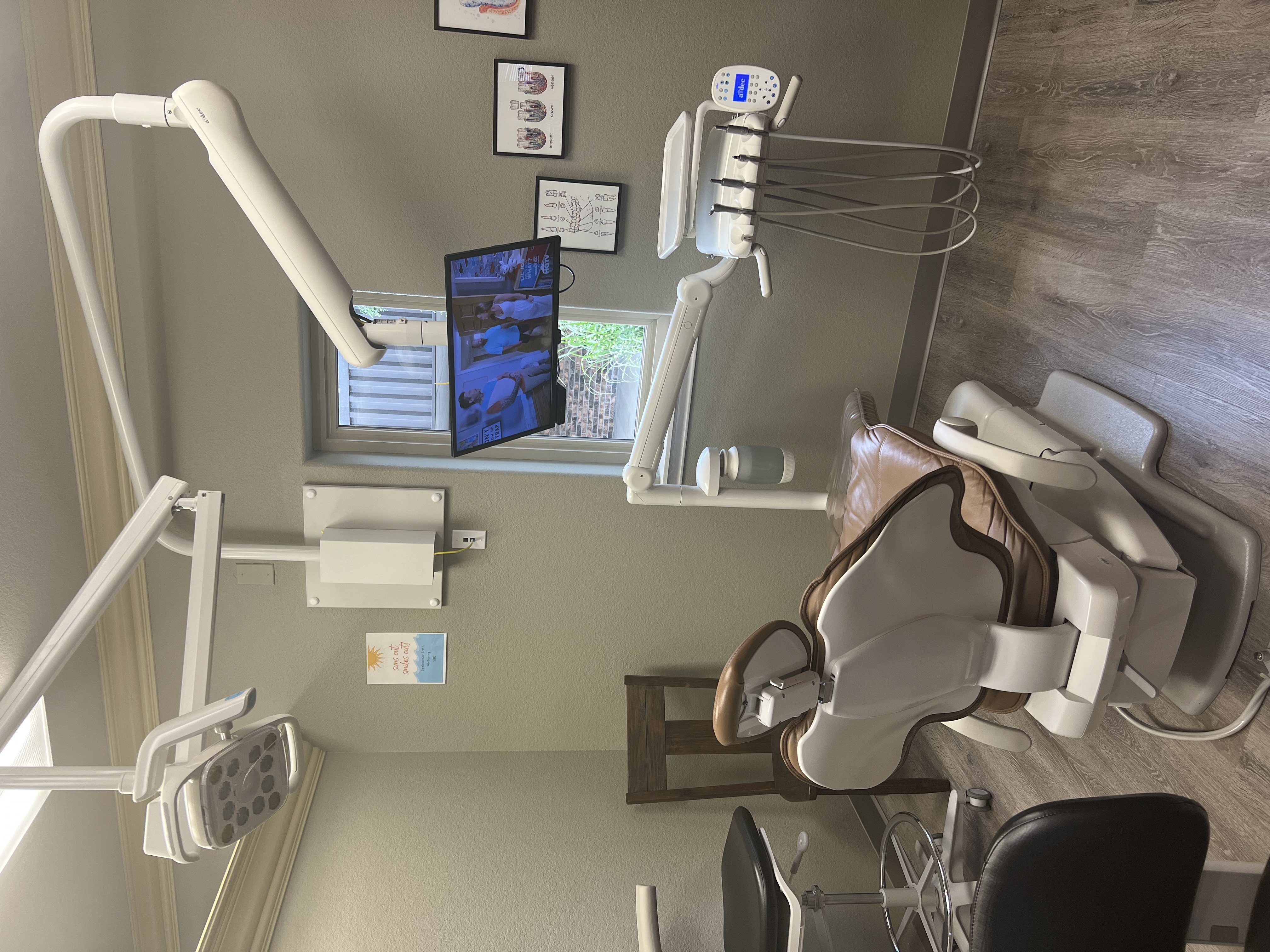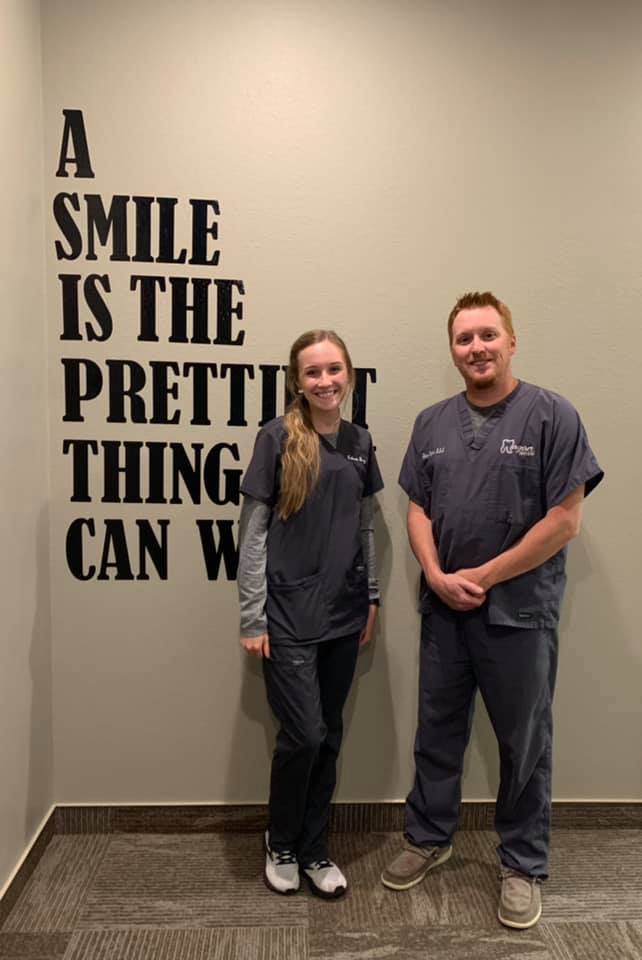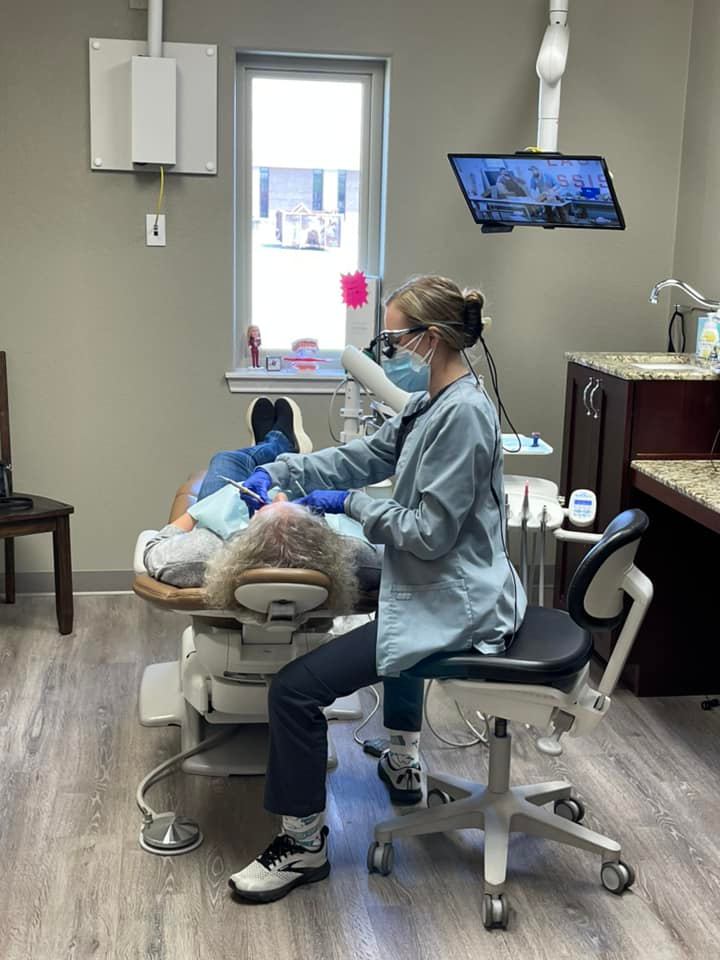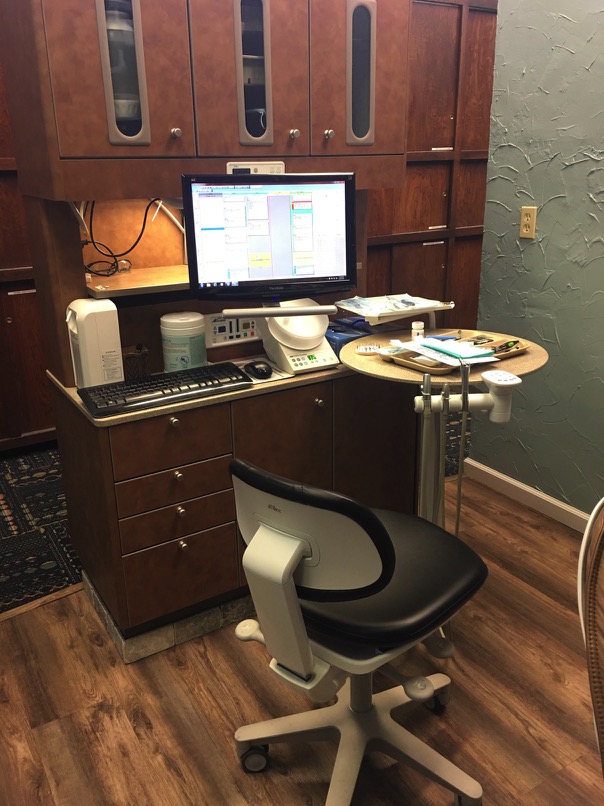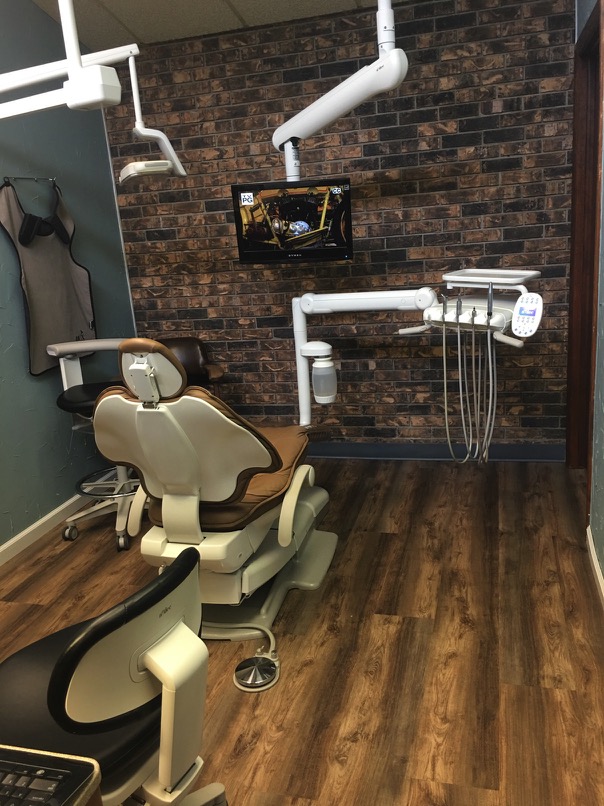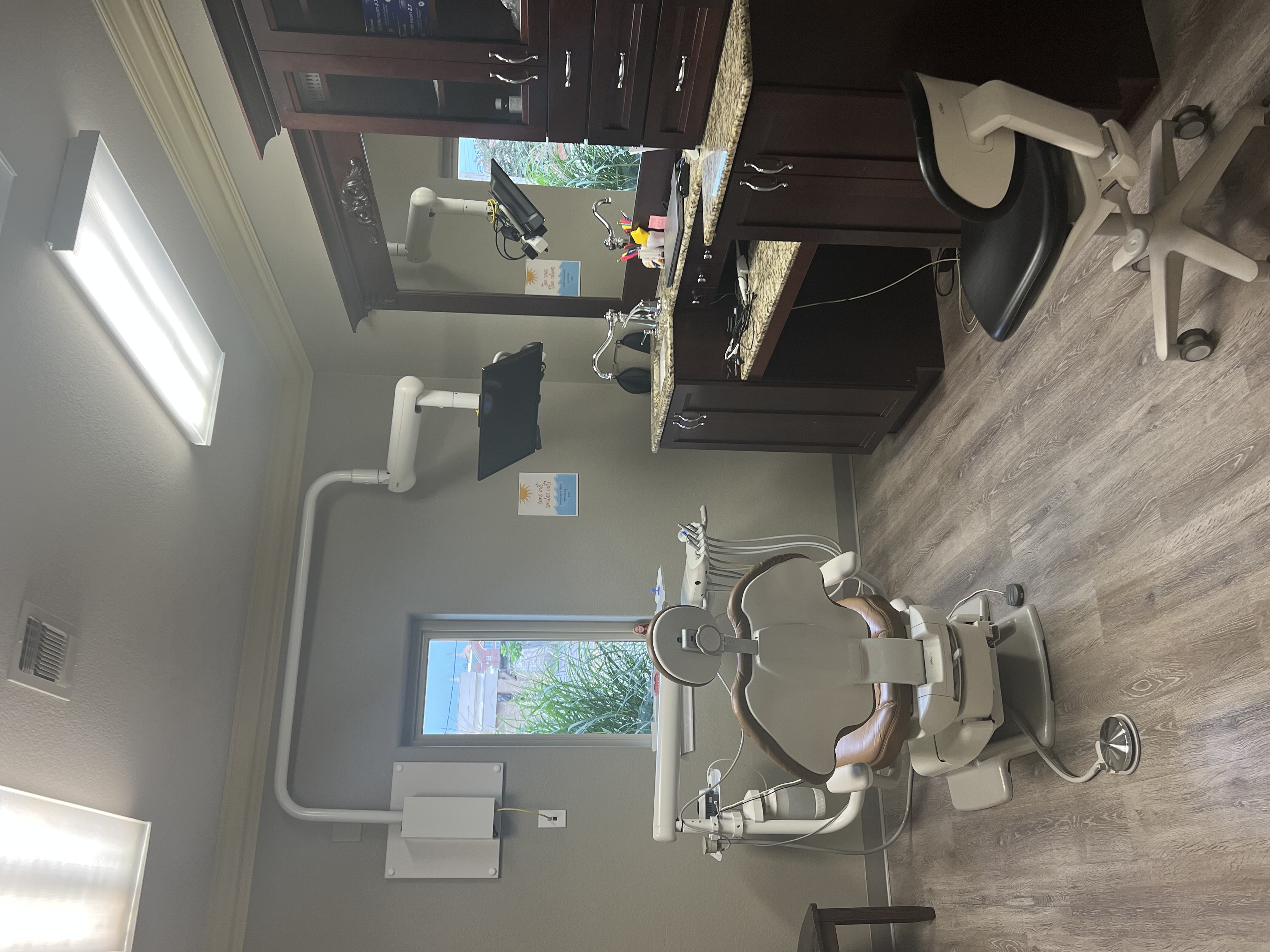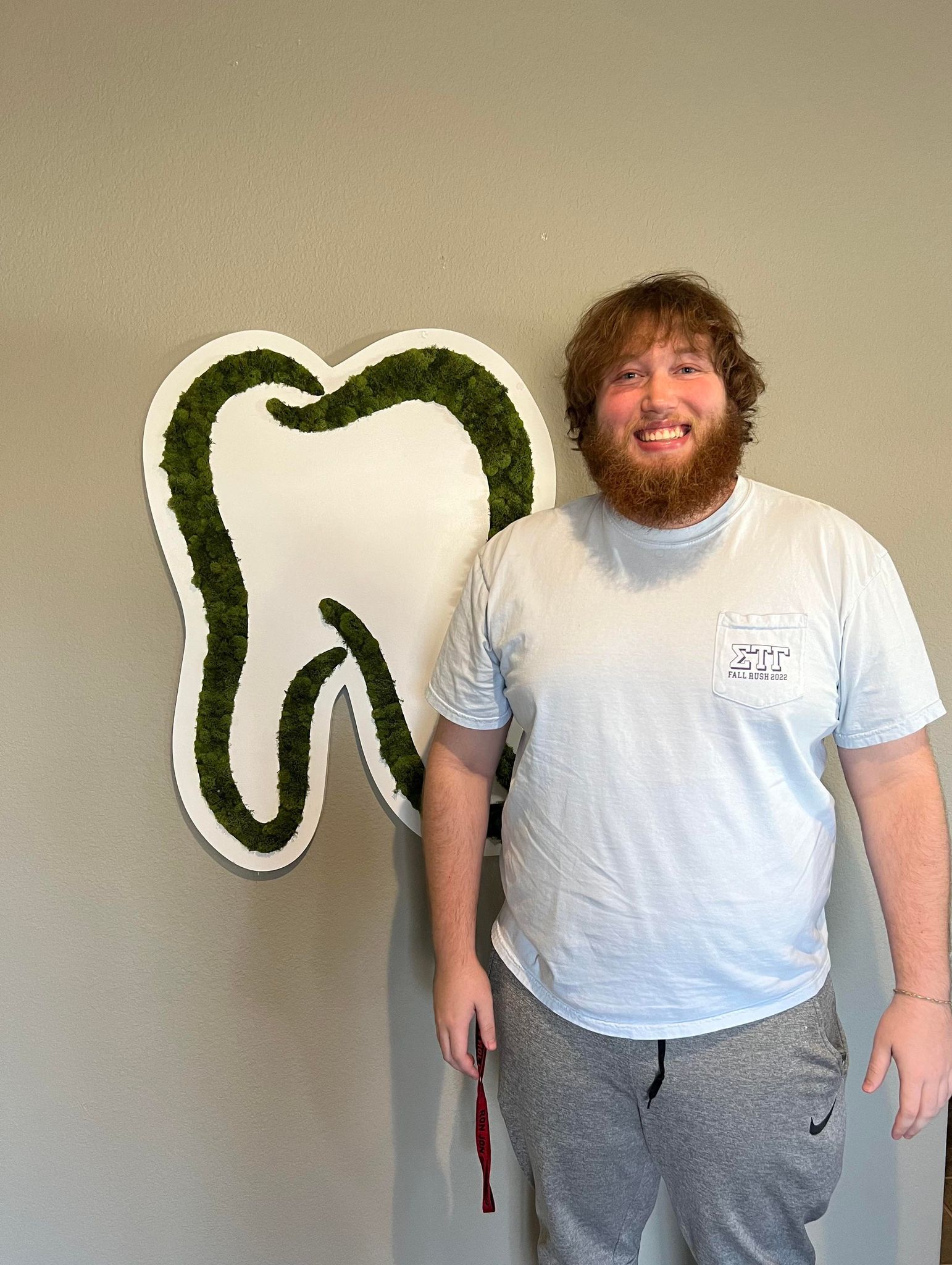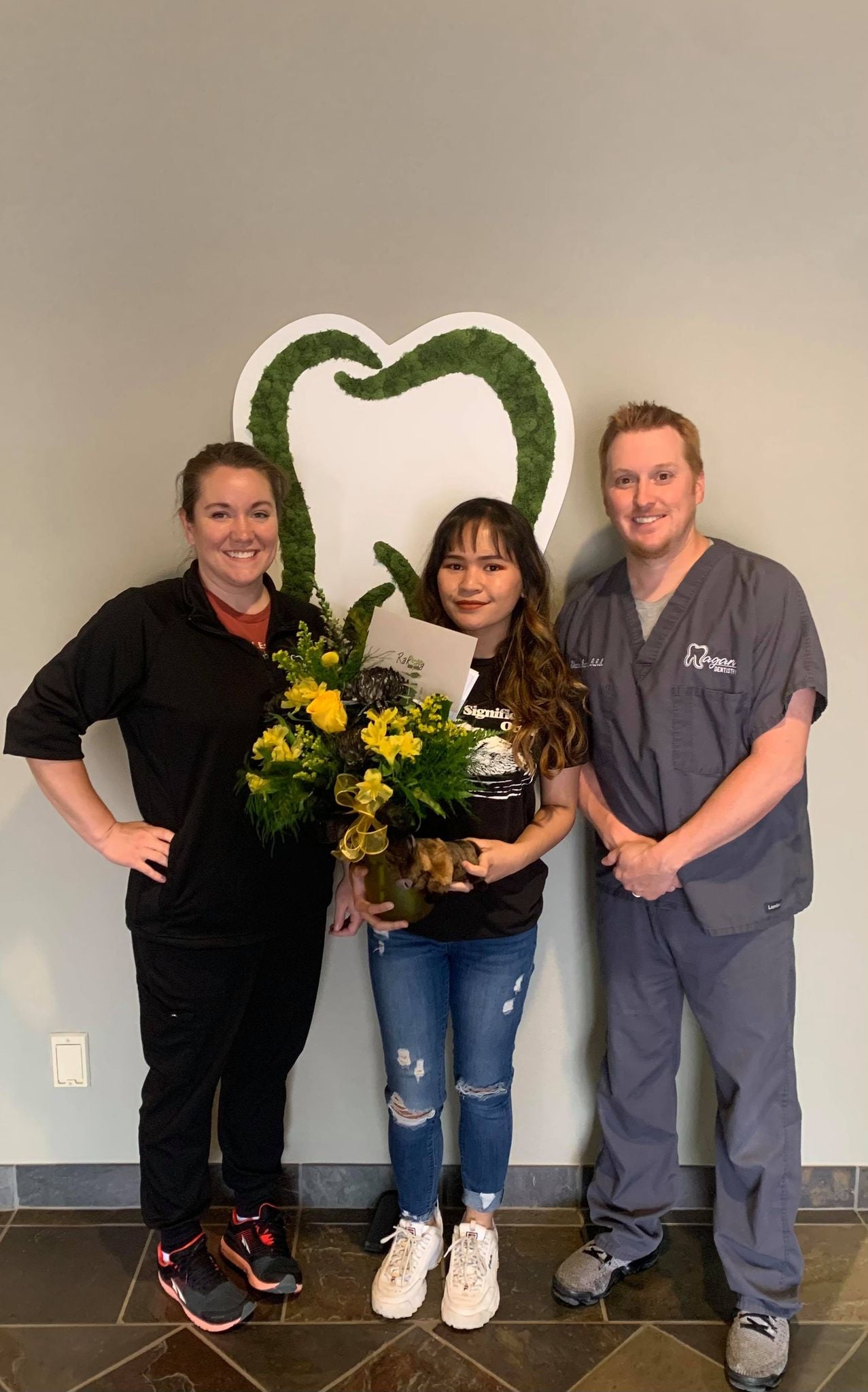Services
![Periodontics Periodontics]()
Periodontics
Periodontics is a specialty of dentistry that focuses on preventing, diagnosing, and treating periodontal issues. At Ragan Family Dentistry, we provide specialized periodontal treatments and procedures to treat gum disease and improve the health of the gums to ensure long-term oral health. Our dentist has received additional training and has extensive experience in providing periodontal care. This means that our patients at Ragan Family Dentistry can have their oral needs addressed under one roof and by one consistent provider instead of having to see multiple specialists. PERIODONTAL DISEASES Periodontal diseases are bacterial infections that affect the gums and bones surrounding the teeth. The most common form of periodontal disease is called gingivitis, characterized by inflammation and bleeding of the gums. If left untreated, gingivitis can progress to a more severe condition known as periodontitis, leading to gum recession, bone loss, and, ultimately, tooth loss. Good oral hygiene practices, such as regular brushing, flossing, and professional dental cleanings, are essential for preventing periodontal diseases. Early detection and treatment of periodontal problems are crucial for preserving the health and function of the teeth and supporting structures. Regular dental checkups are also essential for optimal periodontal health. THE CAUSES OF PERIODONTAL DISEASES Poor Oral Hygiene Inadequate oral hygiene practices, such as infrequent or improper brushing and flossing, allow plaque to build up on the teeth and gums. Plaque contains bacteria that produce toxins, triggering an inflammatory response in the gums and leading to the development of periodontal diseases. Tobacco Use Smoking or using tobacco products significantly increases the risk of developing periodontal diseases. Tobacco use impairs blood flow to the gums, weakens the immune system, and reduces the body's ability to fight infections, making it harder to combat gum disease. Systemic Health Conditions Certain systemic conditions, such as diabetes, cardiovascular diseases, immune disorders, and HIV/AIDS, can compromise the body's immune response and increase the risk of periodontal diseases. Conversely, periodontal diseases can also harm systemic health. COMMON PERIODONTAL TREATMENTS Scaling and Root Planing This non-surgical procedure removes plaque and calculus from the teeth and root surfaces. It involves thoroughly cleaning the teeth above and below the gum line to eliminate bacteria and toxins contributing to gum disease. Periodontal Surgery In cases where non-surgical treatments are insufficient, periodontal surgery may be necessary. There are different types of periodontal surgery, including pocket reduction and gum and bone grafting. These procedures aim to reduce pocket depths, regenerate lost gum tissue, and restore damaged bone. Periodontal Maintenance After undergoing periodontal treatment, regular maintenance visits are crucial to monitor the condition of the gums and prevent the disease from reoccurring. These visits typically involve professional teeth cleaning, examination of gum health, and reinforcement of oral hygiene instructions. Regular dental visits and diligent oral hygiene practices are essential for the long-term success of periodontal treatment and for maintaining healthy gums and teeth. For more information, visit Ragan Family Dentistry at 201 S 3rd St., McAlester, OK 74501, or call (918) 426-9900.
![Preventative Dentistry Preventative Dentistry]()
Preventative Dentistry
Preventative dentistry is a broad term that refers to dental care practices and procedures performed to prevent common oral health issues like cavities and gum disease. Preventive dentistry helps patients avoid costly dental procedures in the future by preventing dental issues and catching them early on when they are much easier to treat. Patients who get regular checkups and professional cleanings are less likely to develop gum disease and other oral health conditions like tooth decay. At Ragan Family Dentistry, our dentist also provides personalized tips and recommendations for keeping your smile healthy between visits. Cleaning your teeth at home with toothpaste, floss, and mouthwash can help you maintain good oral hygiene habits and prevent future problems. TYPES OF PREVENTIVE DENTISTRY PROCEDURES Dental Cleanings Regular dental cleanings performed by a dental hygienist or dentist are the foundation of preventive dentistry. These professional cleanings remove plaque, tartar, and surface stains from the teeth, helping to prevent tooth decay and gum disease. Dental cleanings also allow early detection of any oral health issues. Dental Examinations Routine dental examinations allow our dentist to assess your oral health, detect early signs of dental problems, and develop appropriate treatment plans. During these exams, our dentist examines your teeth, gums, tongue, and other oral structures for any abnormalities or signs of disease. X-rays may also be taken to identify hidden dental issues. Fluoride Treatments Fluoride is a mineral that helps strengthen tooth enamel and protect against tooth decay. Our dentist may recommend professional fluoride treatments to patients who are at higher risk of developing cavities. THE BENEFITS OF VISITING THE DENTIST REGULARLY Visiting our dentist at least twice a year for a regular checkup and cleaning effectively prevents problems before they start. A routine preventive care appointment includes a comprehensive oral examination, which helps us detect any potential problems early on. This lets us treat the issue immediately and prevent further damage to your smile. At every check-up, one of our dental hygienists will professionally clean your teeth to remove any hard mineral buildup that regular brushing at home cannot remove. This prevents cavities and gum disease from developing in the future. Regular checkups help us catch oral health concerns in their earliest stages to provide treatment and keep your smile healthy for a lifetime. Having a healthy smile is essential to your overall well-being because your teeth allow you to bite and chew properly and speak clearly. However, when they are damaged, this can make it difficult for you to eat and speak and can affect your everyday life. By adopting preventive dentistry practices, individuals can maintain good oral health, prevent the progression of dental problems, and potentially reduce the need for more invasive and costly treatments. For the best dental care tailored to your needs, visit Ragan Family Dentistry at 201 S 3rd St., McAlester, OK 74501, or call (918) 426-9900.
![Orthodontics Orthodontics]()
Orthodontics
Orthodontics is a specialized field of dentistry that focuses on diagnosing, preventing, and treating dental and facial irregularities. At Ragan Family Dentistry, the primary goal of our orthodontic treatments is to correct the alignment and positioning of the teeth and jaws to achieve optimal oral function, aesthetics, and overall oral health. Orthodontic treatments use braces, aligners, or other dental appliances to gradually move the teeth into their proper positions. These appliances exert gentle pressure on the teeth, guiding them to shift and align over time. By applying consistent force, orthodontic appliances can correct various dental issues, including misaligned teeth, crowded teeth, gaps between teeth, overbites, underbites, crossbites, and other misalignments. Orthodontic treatment typically begins with a comprehensive evaluation by a dental specialist who has received additional training in orthodontics. To develop an individualized treatment plan, the dentist will assess the patient's oral health and face structure and take dental X-rays. TYPES OF ORTHODONTIC TREATMENTS Braces Braces consist of metal or ceramic brackets bonded to the teeth and connected with wires. The wires are adjusted periodically to move the teeth into their desired positions gradually. Clear Aligners These are a series of custom-made, removable, transparent aligners worn over the teeth. Each aligner is worn for a specific period before being replaced with the next one and gradually guides the teeth into alignment. Retainers After active orthodontic treatment, retainers are often used to maintain the new tooth positions. Retainers can be removable or fixed behind the teeth. THE BENEFITS OF ORTHODONTIC TREATMENT Improved Oral Health Straight teeth are easier to clean, reducing the risk of tooth decay, gum disease, and other oral health problems. Aesthetic Improvement Properly aligned teeth can significantly improve the smile's appearance, facial symmetry, and confidence. Improved Bite and Function Orthodontic treatment can correct bite issues, allowing for better chewing, speaking, and jaw function. Prevention of Dental Problems By addressing misalignments and irregularities early on, orthodontic treatment can prevent future dental issues, including excessive tooth wear, jaw joint problems, and speech difficulties. Improved Self-Esteem Receiving orthodontic treatment helps patients feel more confident in their appearance, allowing them to take better care of themselves and live happier lives. If orthodontic treatment is appropriate for your needs, our dentist will assess your oral condition, discuss treatment options, and provide a personalized treatment plan to help you achieve a healthy, functional, and beautiful smile. For the best dental care, visit Ragan Family Dentistry at 201 S 3rd St., McAlester, OK 74501, or call (918) 426-9900.
![Dental Implants Dental Implants]()
Dental Implants
Dental implants are replacements for teeth that are missing or have been extracted. An implant is a titanium screw inserted into your jawbone to replace the missing root of your natural tooth. Titanium is used because it is bio-compatible with human bone and integrates easily into the jawbone through osseointegration. The first step of the implant procedure involves surgically placing the dental implant into the jawbone and waiting for it to heal and integrate with the bone tissue, which takes a few months. Once healing is complete, our dentist will place an abutment and then finalize the procedure by placing a custom dental crown. THE BENEFITS OF DENTAL IMPLANTS Improved Appearance Dental implants look and feel like natural teeth and provide a seamless and fully functional restoration. No one will be able to tell the difference between your natural teeth and implant-supported teeth. Enhanced Functionality Dental implants restore the ability to bite and chew properly. Unlike removable dentures that may slip out or cause discomfort, implants provide a stable foundation for chewing, allowing you to enjoy a wide range of foods without restrictions. Jawbone Preservation When a tooth is lost, the underlying jawbone can deteriorate over time due to a lack of stimulation. Dental implants mimic the function of natural tooth roots and stimulate the jawbone through chewing forces, helping to preserve bone density and maintain the integrity of the facial structure. THE PROCEDURE FOR DENTAL IMPLANTS The first stage involves the placement of the dental implant into the jawbone. The procedure is usually performed under local anesthesia; sedation or general anesthesia may also be used to ensure patient comfort. The dentist will make an incision in the gum tissue to expose the underlying bone and then drill a small hole in the bone to insert the implant. The implant is typically made from biocompatible titanium and is designed to replace the missing tooth's root. After the implant is placed, the surrounding gum tissue is sutured, and a healing period of several weeks to months follows. During this time, osseointegration occurs, a process in which the bone fuses with the implant's surface, providing a stable foundation. Once osseointegration has occurred, a minor surgical procedure is performed to expose the top of the implant and place an abutment. This involves making a small incision in the gum tissue to access the implant. The abutment connects the implant and the final restoration. The gum tissue is then allowed to heal around the abutment over the course of a few weeks. After the gum tissue has healed, impressions of your teeth and bite are taken to create the final restoration. The restoration may be a dental crown for the replacement of a single tooth or a bridge or denture for the replacement of multiple missing teeth. The final restoration is custom-made to match your natural teeth in terms of color, shape, and size, providing a functional and aesthetically pleasing result. Dental implants offer several advantages over other tooth replacement options, as they closely mimic the look, feel, and function of natural teeth. Visit Ragan Family Dentistry at 201 S 3rd St., McAlester, OK 74501, or call (918) 426 - 9900 to learn more about dental implants.
WELCOME TO RAGAN FAMILY DENTISTRY
Our dental practice’s mission is to provide our patients with the highest quality dental care in a comfortable and relaxed environment. We are a multi-specialty practice offering you a full range of dental services including preventative care, maintenance, cosmetic dentistry, orthodontics, teeth whitening, periodontal care, and dental implants.
History
Ragan Family Dentistry has been serving the McAlester community since 2008. Our patients come from all around the local area as well as the surrounding counties to experience the warm, individual care we provide. We pride ourselves on utilizing the most modern equipment and methods available. Dr. Ragan and his staff will give each individual patient the best possible experience.
Plan your visit to our Clinic
See what our patients are saying

On a scale of 1-10, would be something like 95-100….. don’t know the right words to say it, it’s really good.

They have been nothing but wonderful to us.

They took good care of my dental needs. Very kind and caring professional staff. Great dentist too. If you want the best care in town come here.

Always the best dental experience!! 🦷

Professional Dr and staff they go over all your options I trust their recommendations
Insurance Information
*Unfortunately, we do not accept Soonercare, Dentaquest, Liberty Dental and Community Care.
Insurances we are In-network with













PROFESSIONAL ASSOCIATIONS
AMERICAN DENTAL ASSOCIATION
OKLAHOMA DENTAL ASSOCIATION
EASTERN OKLAHOMA DISTRICT DENTAL SOCIETY
AMERICAN ORTHODONTIC SOCIETY
GIVE US A CALL
McAlester, OK
Give us a call

